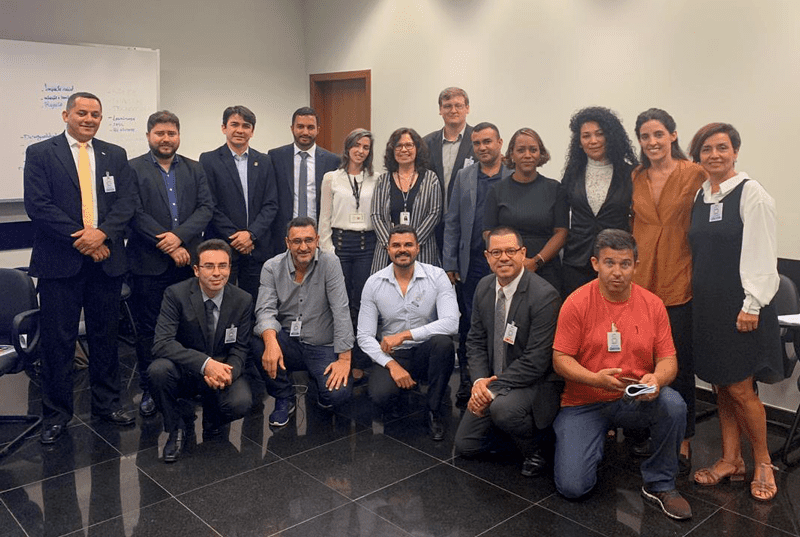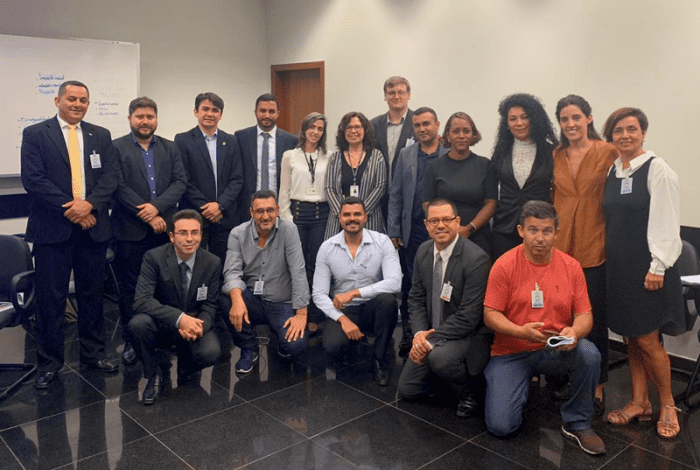Artisanal and small-scale mining (ASM) is economically and culturally rooted in Brazil, dating back to the 17th century. Today, the sector provides livelihoods for more than 450,000 traditional ASM miners, known as garimpeiros in Brazil, and their communities.
Gold mining makes up a large part of the country’s ASM sector, with new lucrative discoveries attracting new generations of miners. For example, in 1979 miners rushed to Peixoto de Acevedo in Brazil’s lower Amazon Rainforest, where gold was visible on the surface and miners could initially extract up to 1,000 kilos of gold per day. Today, this community continues to rely on gold mining like many other communities in the country.
The Challenge
Brazil’s ASM sector is often informal and unregulated, and it has a poor record of environmental and social performance. These operations have been linked to deforestation in the Amazon that has raised alarms on the international stage.
For workers, the combination of toxic materials and rudimentary mining equipment — often little changed from centuries past—creates dangerous and sometimes deadly working conditions. In addition, operating informally leaves miners in a precarious legal position that can be exploited by intermediaries to buy gold below normal market prices.
For the government, formalizing miners and regulating the ASM sector is a significant and pressing challenge, with the potential to improve many lives, protect the environment, and benefit all stakeholders along the value chain.
In decades past, Brazil’s efforts to formalize ASM operations lacked coordination between government departments and failed to provide the training, support, and incentives needed to draw miners into the formal economy. As a long-time IGF member, Brazil recognized that the IGF Secretariat could help the country develop an effective ASM management plan in accordance with international best practices.
Our Role
In 2018, Brazilian officials attended a regional capacity-building program about implementing IGF’s then newly published Guidance for Governments: Managing Artisanal and Small-Scale Mining that presents a step-by-step process for governments to develop, implement, and monitor an effective ASM management strategy.
By the following year, government officials in Brazil understood that the country needed to take a new approach in line with the IGF’s guidance and asked the IGF Secretariat to deliver a specialized workshop on ASM management for Brazilian officials. At the government’s request, representatives from mining cooperatives, non-governmental and international organizations also attended. Throughout the week, the IGF guided participants to develop a management strategy for three priority ASM regions that host 200,000 people: Calcoene, Tapajos, and Peixoto de Azevedo. Participants created comprehensive and budgeted action plans focused on addressing priority issues such as mercury use, deforestation, working conditions, and economic opportunity.
“The IGF’s support helped our government to understand that the ASM sector is not just an economic issue, but a complex social activity, that needs versatile and multidisciplinary solutions to tackle its problems,” said Gabriel Maldonado, Brazil’s Director of the Department of Sustainable Development in Mining.
Our Impact
Following the workshop, Brazil’s Ministry of Mines and Energy created the ASM task force that is leading the government’s drive for formalization and environmental, social, and economic sustainability in the sector. The task force’s action items reflect the priorities identified during the IGF workshop. They include specific government initiatives to provide technical assistance and financial incentives for miners and establish a permanent ASM government commission. This commission is focused on the environment, health, mine security, science and technology, and specific regional developments, needs, and concerns. The government is also developing regulations for health, safety, and environmental protection and regimes for licensing and certification.
We are certain that Brazil’s ASM sector is entering a new phase, and we could not be more excited about the outcome of our IGF partnership and the prospects ahead of us.
– Gabriel Maldonado, Director of the Department of Sustainable Development in Mining, Brazil
“With these measures, that must be continuously strengthened, the Brazilian state can promote a real revolution in the way the ASM sector behaves, guiding miners to perform good practices under the logic of sustainable development,” said Maldonado, who is also a member of the ASM task force.
The workshop also triggered some ASM cooperatives in attendance to improve their day-to-day operations. For instance, some gold cooperatives are now participating in the Garimpo 4.0 project, sponsored by the National Gold Association. The project aims to humanize and dignify ASM miners and their livelihoods and reflects the three-phase approach recommended in the IGF’s guidance and workshop. Garimpo 4.0 also promotes formalization, training, environmental conservation, and legal compliance—which align with the government’s priorities for the sector—and supports gradually eliminating mercury use and using traceability to help miners get better gold prices. Importantly, this project exemplifies how the government and miners share a common interest: a more sustainable ASM sector.
“We are certain that Brazil’s ASM sector is entering a new phase, and we could not be more excited about the outcome of our IGF partnership and the prospects ahead of us,” Maldonado said.



